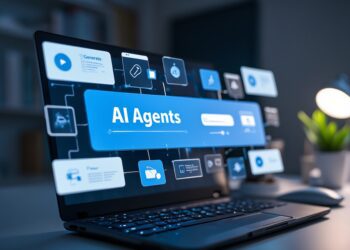Accountants have long been seen as easy targets for automation. Accounting often tops lists of the most automatable jobs, owing to its reliance on routine tasks like data entry and reconciliation: exactly the kind of work computers — and now, artificial intelligence — are built to handle.
But a new study by Jung Ho Choi, an assistant professor of accounting at Stanford Graduate School of Business, and Chloe Xie, PhD ’20, of MIT Sloan School of Management, challenges the idea that AI is here to simply replace accountants.
Instead, they find that accountants who use generative AI can support more clients, close the books faster, and provide higher-quality service. Rather than replacing bean counters and bookkeepers, AI helps them work more efficiently by automating repetitive tasks and flagging issues in real time, making it easier to complete reports quickly and accurately. And accountants themselves say that AI is making their jobs more manageable.
“AI helps with multitasking,” Choi says. “In order to support each client, accountants have to pull information, connect bank transactions, track vendors — a lot of prework. AI assists with that setup, which means they can serve more clients, more efficiently.”
The research draws on survey responses from 277 accountants and detailed task-level data for 79 small- and mid-sized firms that use AI-powered accounting tools. An analysis of both datasets shows that AI is taking over repetitive tasks, like transaction classification, allowing accountants to shift their attention to higher-value work.
According to the study, accountants who use AI support more clients per week and finalize monthly statements 7.5 days faster than those who use traditional methods. They also spend 8.5% less time on routine back-office processing. Instead of grinding through transactions line by line, they can redirect that time toward business communication, quality assurance, and client-facing advisory work.
Crucially, this increase in capacity does not appear to come at the expense of quality — if anything, standards improve. The study found that accounting firms using generative AI saw a 12% rise in reporting granularity, meaning they kept more detailed records. Instead of grouping expenses into broad categories like payroll, AI helped break them down into more specific categories like bonuses, benefits, or meals. This makes financial reports more informative and easier to analyze, audit, and act on.
“If you think about the early adoption of anything, there is generally some trade-off between quantity and quality,” Xie says. “Whereas in this instance, perhaps surprisingly, the trade-off is not so sharp. That’s probably most related to the fact that the technology is not here to replace the human being — it’s here to augment the experts who are already in place.”
Read the full article by Stanford Insights












